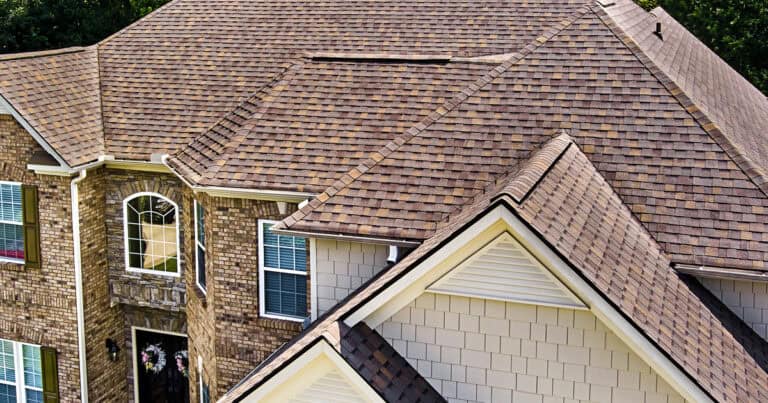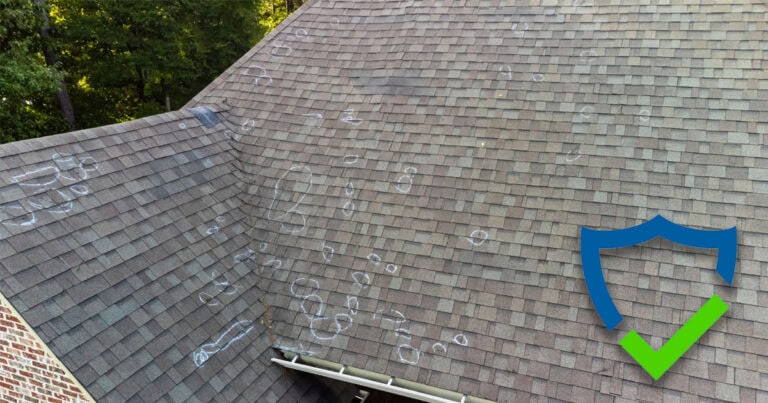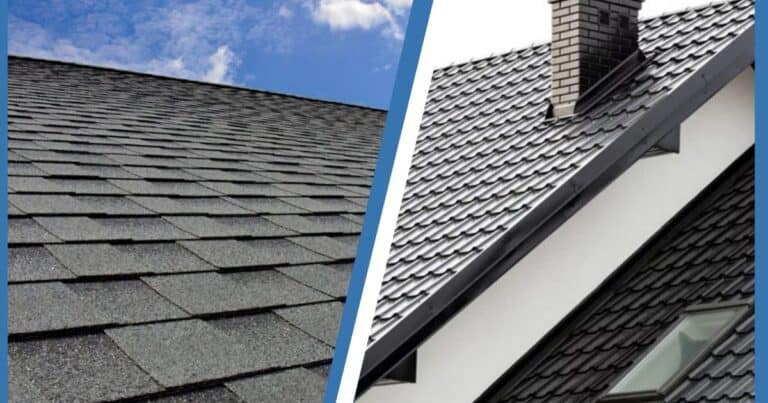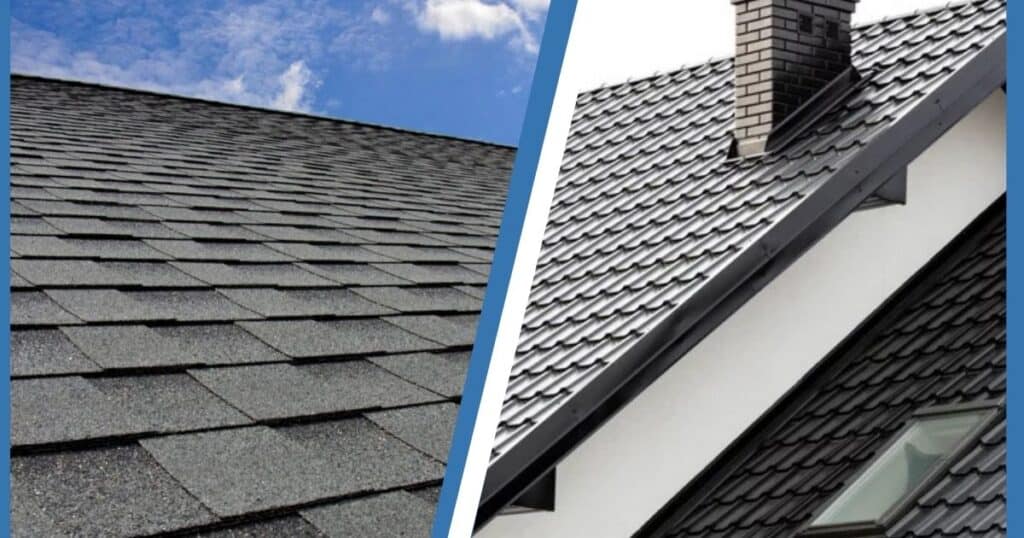
Every spring, North Texas homeowners face the same gut-wrenching moment: standing in their driveway after another brutal hailstorm, staring up at their roof like it’s personally betrayed them. Shingles scattered across the lawn like confetti from the world’s worst party. Sound familiar?
If you’re nodding along, you’re not alone. Here in North Texas, we’ve seen it all – from golf ball-sized hail in Frisco to those sneaky wind gusts that turn perfectly good shingles into expensive frisbees. As roofing professionals at RidgeCore Roofing, we’ve walked countless homeowners through this exact scenario, and the question always comes down to one thing: asphalt vs metal roof – which one’s actually worth your hard-earned money?
The asphalt vs metal roof debate isn’t just about materials – it’s about making a smart investment that’ll protect your family and your wallet for decades to come. Let’s cut through the noise and get real about what each option brings to the table. Because honestly? Your roof isn’t just about keeping the rain out – it’s about peace of mind, energy bills, and yes, even your home’s street appeal.
The Great Roof Showdown: What We’re Really Comparing
Before we dive into the nitty-gritty, let’s set the stage. The asphalt vs metal roof comparison isn’t just about materials – we’re comparing lifestyles, budgets, and frankly, how much sleep you want to lose worrying about your roof.
Asphalt shingles are like that reliable friend who’s always there when you need them. They’re affordable, familiar, and get the job done without much fuss. Metal roofing, on the other hand, is like upgrading from a Honda Civic to a Tesla – higher upfront cost, but with perks that might just blow your mind.
Understanding the asphalt vs metal roof decision requires looking at multiple factors including local building codes, energy efficiency standards, and insurance requirements.
Cost Breakdown: The Numbers That Actually Matter
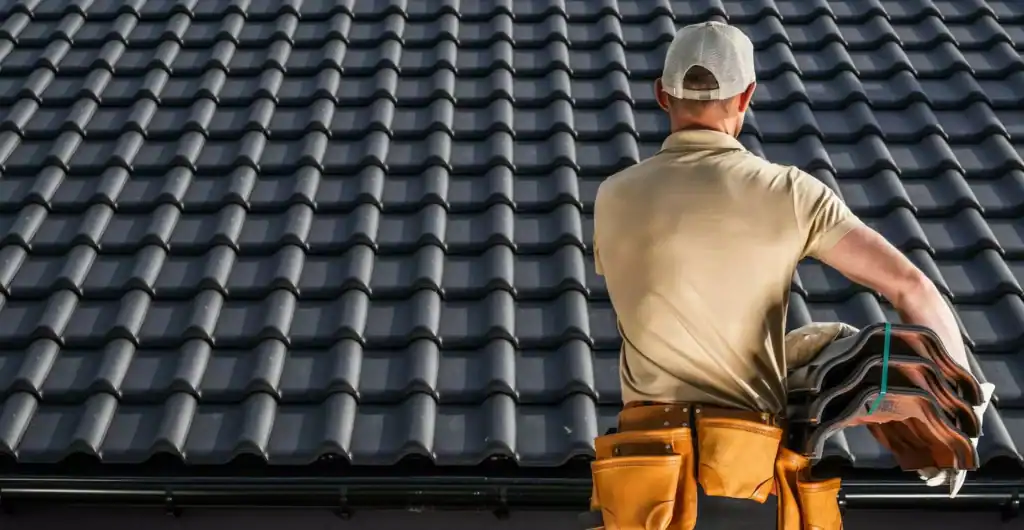
How Much Does Asphalt Shingle Installation Cost Compared to Metal Roofing?
Let’s talk dollars and cents because I know that’s what’s keeping you up at night. Here in Texas, the numbers might surprise you:
| Roof Type | Initial Cost per Sq. Ft. | Total Cost (2,000 sq. ft. home) | 30-Year Total Cost |
|---|---|---|---|
| Asphalt Shingles | $3.50 – $5.50 | $7,000 – $11,000 | $14,000 – $22,000 |
| Metal Roofing | $8.00 – $14.00 | $16,000 – $28,000 | $16,000 – $28,000 |
Hold up – before you let sticker shock set in, notice that 30-year column. That’s where metal roofing starts looking pretty attractive. While you’re replacing asphalt shingles, metal roof owners are still enjoying their original investment.
Which Roof Offers Better Long-Term Value?
Here’s where it gets interesting. I’ve had clients who went the “budget-friendly” asphalt route, only to call us back after major storm damage. Meanwhile, their neighbor with the metal roof? Still sitting pretty, maybe with a few dents that actually add character.
When comparing asphalt vs metal roof long-term value, metal roofing wins for several reasons:
- Longevity: 40-70 years vs. 15-25 years for asphalt
- Energy savings: Up to 25% reduction in cooling costs according to the Metal Roofing Alliance
- Insurance discounts: Many insurers offer 10-15% discounts for impact-resistant metal roofs
- Resale value: Typically recoups 70-80% of installation cost per Remodeling Magazine’s Cost vs. Value Report
Will Insurance Cover My Roof Replacement?
This is where things get real. Most homeowner’s insurance policies cover storm damage roof replacement, but here’s the kicker – they don’t cover normal wear and tear. Understanding your coverage is crucial when making the asphalt vs metal roof decision.
We’ve seen insurance companies more willing to approve metal roof installations after hail damage because they know it’s less likely to need replacement again. Many insurers now offer discounts for impact-resistant roofing materials, making the metal option even more attractive financially.
Durability Face-Off: Which Roof Actually Survives Texas Weather?

How Long Do Asphalt Shingles vs. Metal Roofs Last?
In Texas heat, asphalt shingles age like milk left in a hot car. Our intense UV rays, temperature swings, and sudden storms create a perfect storm for roof deterioration. This lifespan difference is a crucial factor in any asphalt vs metal roof comparison.
Asphalt shingles typically last:
- 15-20 years in Texas climate
- 12-15 years in areas with frequent hail
- Even less if you’re dealing with poor ventilation
Metal roofs laugh in the face of Texas weather:
- 40-50 years for steel
- 50-70 years for aluminum or copper
- Some manufacturers offer 50-year warranties
The National Association of Home Builders confirms these lifespan differences, making the asphalt vs metal roof longevity gap even more significant than many homeowners realize.
Which Roof Handles Severe Weather Better?
Let me paint you a picture. Last spring, we had a client in Plano whose metal roof took a direct hit from baseball-sized hail. The result? A few cosmetic dents and a perfectly functional roof. Their neighbor with asphalt shingles? Let’s just say we got very familiar with their attic that month.
Metal roofing advantages in severe weather:
- Hail resistant roofing: Class 4 impact rating
- Wind resistance up to 140 mph
- Won’t crack, curl, or blow off in high winds
- Fire resistant (Class A rating)
Asphalt shingles struggle with:
- Hail damage leading to granule loss
- Wind uplift in storms over 60 mph
- UV degradation causing brittleness
- Thermal cycling stress from temperature changes
Do Metal Roofs Rust or Corrode?
This is probably the most common concern I hear, and honestly, it’s stuck in the past. Modern metal roofing isn’t your grandfather’s tin roof.
Today’s metal roofs feature:
- Galvanized steel with protective coatings
- Aluminum that naturally resists corrosion
- Specialized paint systems that prevent rust
- 25-30 year paint warranties
Installation Reality Check: What You Need to Know
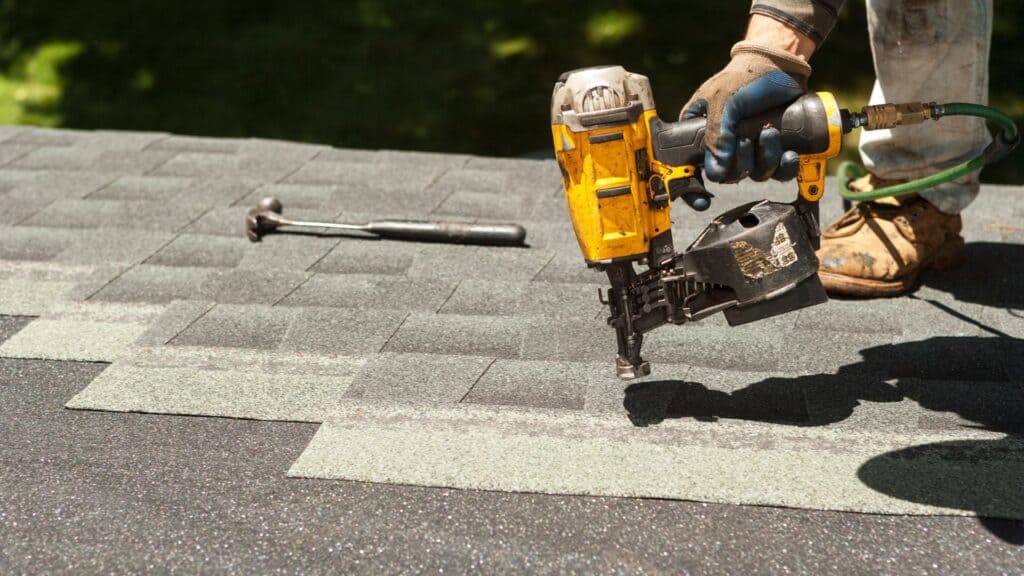
Can I Install Either Roof Type Myself?
I’m going to be straight with you – unless you’re a professional roofer, the answer is no. And here’s why that matters more in Texas than anywhere else.
Professional roof installation isn’t just about getting the shingles on straight. It’s about:
- Proper ventilation for our intense heat
- Storm-resistant installation techniques
- Building code compliance (Texas has specific requirements)
- Warranty protection (DIY voids most warranties)
We’ve seen too many weekend warrior projects turn into emergency roof repair situations. Trust me, the money you save on labor isn’t worth the headache when your roof fails during the next storm.
How Long Does Installation Take?
Asphalt shingle installation: 1-3 days for most homes
Metal roof installation: 2-5 days depending on complexity
The extra time for metal installation pays off in precision. Our team takes special care with metal installations because proper technique determines whether your roof lasts 20 years or 50.
Which Roof Requires More Maintenance?
Asphalt shingles need:
- Annual inspections
- Granule loss monitoring
- Flashing repairs
- Gutter cleaning (more debris)
- Replacement of damaged shingles
Metal roofs need:
- Periodic inspections
- Screw tightening (rarely)
- Debris removal
- Touch-up painting (if needed)
Honestly? Metal roofs are the “set it and forget it” option. I have clients who haven’t needed any maintenance in 15 years.
Performance Deep Dive: The Details That Matter
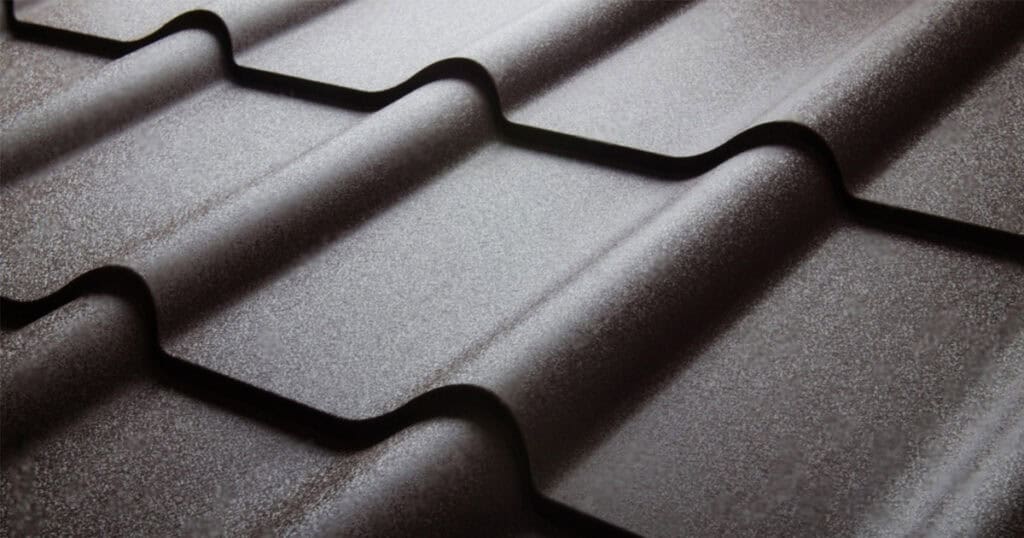
Are Metal Roofs Louder Than Asphalt Shingles?
Let’s bust this myth right now. With proper installation and insulation, metal roofs are not significantly louder than asphalt shingles. The difference? Maybe 2-6 decibels, which is barely noticeable.
The “drumming” effect happens when:
- Metal is installed over skip sheathing (old method)
- Insufficient insulation is used
- Poor installation techniques are employed
Professional roofers install metal over solid decking with proper underlayment, eliminating noise concerns.
Which Roof Is More Energy Efficient?
This is where metal roofing absolutely shines, especially in Texas. The asphalt vs metal roof energy efficiency comparison isn’t even close – metal roofs can reduce cooling costs by 10-25% through:
- Reflective coatings that bounce heat away
- Thermal emittance that releases absorbed heat quickly
- Ventilation systems that create airflow
- Radiant barriers that block heat transfer
The Department of Energy recognizes metal roofing as a “cool roof” technology, and the Cool Roof Rating Council provides independent ratings that show metal’s superior performance in hot climates like Texas.
Do Metal Roofs Affect Home Resale Value?
Metal roofs typically increase home value by 1-6% and offer better return on investment than most home improvements. In Texas, where buyers know the value of weather-resistant features, metal roofs are increasingly seen as premium upgrades.
Factors affecting resale value:
- Remaining warranty life
- Aesthetic appeal
- Energy efficiency ratings
- Storm resistance features
Warranty and Protection: Your Safety Net
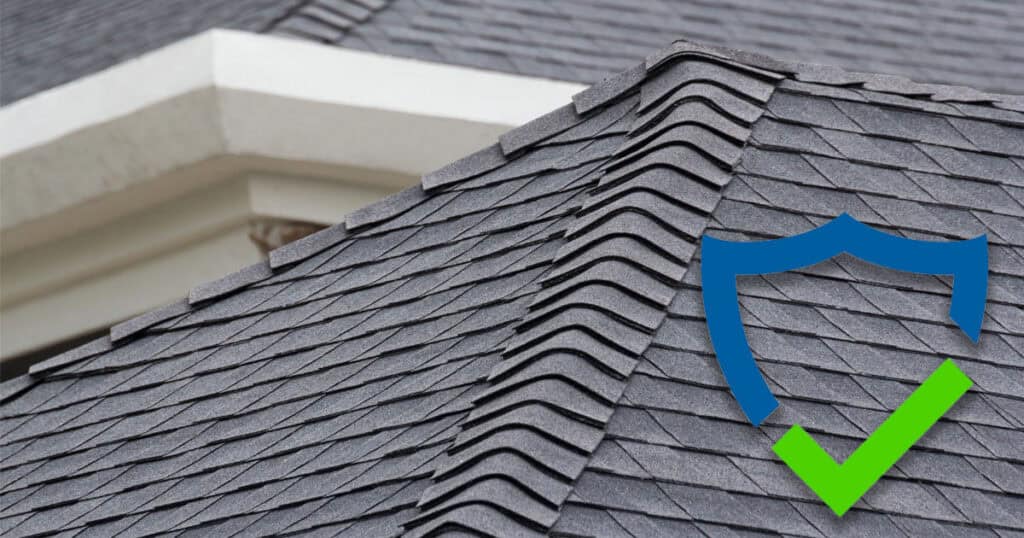
What Warranties Are Available for Each Roof Type?
Asphalt shingle warranties:
- Material warranty: 20-30 years (often prorated)
- Installation warranty: 1-10 years
- Wind warranty: Often separate, limited coverage
Metal roof warranties:
- Material warranty: 30-50 years
- Paint warranty: 25-30 years
- Installation warranty: 10-25 years
- Perforation warranty: Often lifetime
What Voids a Roof Warranty?
Common warranty killers:
- Improper installation
- Inadequate ventilation
- Walking on the roof inappropriately
- Using incompatible materials
- Neglecting maintenance requirements
This is why working with professional roofers matters. We ensure your warranty stays intact from day one.
Environmental and Practical Considerations

Which Roof Is More Environmentally Friendly?
Metal roofing wins the sustainability game:
- 95% recyclable at end of life
- Often contains 40-60% recycled content
- Reduces energy consumption
- Longer lifespan means less waste
Asphalt shingles:
- Mostly end up in landfills
- Petroleum-based materials
- Shorter lifespan means more frequent replacement
- Limited recycling options
How Do the Materials Compare in Weight?
Weight comparison (per 100 sq. ft.):
- Asphalt shingles: 200-300 pounds
- Metal roofing: 50-150 pounds
This weight difference matters for older homes or those with structural concerns. Metal roofing puts less stress on your home’s frame.
The Texas Truth: Which Roof Is Right for You?

After installing hundreds of roofs across North Texas, here’s what I’ve learned about the asphalt vs metal roof decision:
Choose asphalt shingles if:
- You need the lowest upfront cost
- You plan to move within 10-15 years
- You prefer traditional appearance
- You’re okay with periodic maintenance
Choose metal roofing if:
- You want long-term value
- Energy efficiency is important
- You’re tired of storm damage repairs
- You want to increase home value
- You prefer minimal maintenance
The asphalt vs metal roof choice ultimately depends on your priorities, timeline, and budget. Both options have their place in the Texas market, but understanding the long-term implications is crucial for making the right decision.
When Storm Damage Strikes: Your Action Plan
Living in Texas means dealing with severe weather. When storm damage happens, here’s what you need to know:
- Document everything with photos
- Contact your insurance company immediately
- Get professional roof inspection to assess damage
- Choose reputable contractors experienced in storm repairs
- Don’t rush repairs—get multiple quotes
We’re here to help every step of the way with free inspections and insurance claim assistance.
Get Started With RidgeCore Roofing Today
Whether you choose asphalt or metal roofing, one thing’s for sure: quality installation and materials make all the difference. Our team in Frisco and North Texas is ready to help protect your home with expert advice and unmatched craftsmanship. Visit our contact page to get started!

